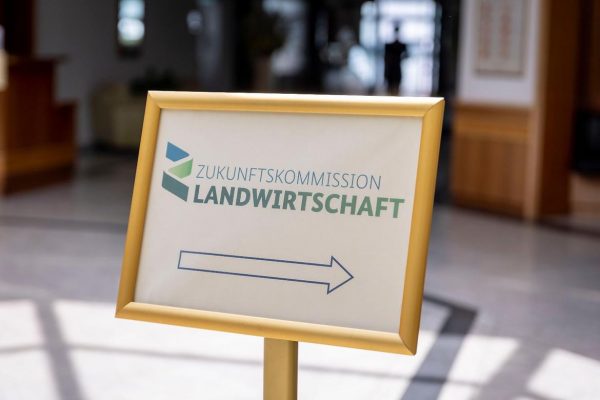Once again, I would like to comment on the results of the Future Commission for Agriculture (FCA) which was installed by the federal government of Germany: What does the far-reaching consensus of the commission members mean for the agricultural machinery sector? Definitely a big challenge!
Everything that has been set in motion in the technical development of the last 15 years by our innovative engineering industry is often very impressive. Smart or digital farming have long ceased to stand for distant future technologies. There are incredible changes in practice that are only a few years old but are standard today. The focus is on efficiency and economy.
Nevertheless, the FCA imagines the future of the German agricultural and food system to be even more changed. The focus is on the following topics:
- Where is the digital farming data located and who owns it?
- How can the digital infrastructure in Germany meet the needs of agriculture at all?
- What access is there to the geo-data for farmers?
- What access does small and medium-sized farms have to modern technologies?
- How can agricultural engineering compensate for the loss of pesticides?
- How can a resource-saving, CO2-neutral application of fertilizers be improved even more?
- How can harmful soil compaction caused by large machines be answered?
A summary of the FCA’s answers to these questions can be found here:
The FCA’s demands on these questions are clear: all participating representatives from agriculture, agricultural industry associations, the food industry and NGOs demand to clearly side with the farmers and to strengthen their rights politically and legally. Even if the innovators at the agricultural machinery companies may not like it, the FCA clearly calls on politicians to ensure that the data of digital agriculture must belong to the farmers. The biggest challenge here is the (still?) lack of digital infrastructure in Germany, especially in rural areas. According to the FCA, if society and politics demand sustainable, climate-neutral agriculture, “delivery has to be made here”. There should be free access to the geo-data for agriculture, so that it does not only have to be purchased in combination with licensed software.
The state should support agricultural engineering companies in the further development and research of new technologies and in access to digital technologies for companies, but only if the use is also made possible for small and medium-sized companies. Agricultural engineering is required to think in new ways towards sustainable, climate-neutral technologies. Large machines should only be the exception on the fields, small robot systems work on each plant individually. Single plant weed removal and fertilization should be the future.
These demands and the social pressure on medium-sized agricultural engineering companies are constantly increasing. The entrepreneurs and their employees and partners, like the other 4 sectors I have already written about the FCA, are required to rethink their companies and organizations. This can cause a lot of stress and worry. A systematic approach is necessary. My view from the outside could help in structuring the necessary changes to develop new strategies. On the other hand, my coaching helps to strengthen the managers concerned, to free themselves from old thought patterns and to transform fear and worry into confidence and a spirit of optimism. Give it a try: External support for a major change can lead to a breakthrough. I am at your disposal for a non-binding conversation. Contact me at info@torsten-spill.de to make an appointment.
